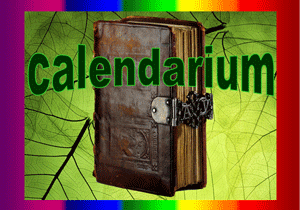Mensis Iunius, zomermaand, rozenmaand
Machteld Roede
calendarium 1, calendarium 2, calendarium 3 en calendarium 4 — januari 1, januari 2 en januari 3 — februari 1, februari 2 en februari 3 — maart 1, maart 2, maart 3, maart 4 en maart 5 — april 1, april 2, april 3 en april 4 — mei 1, mei 2, mei 3, mei 4 en mei 5 — juni 1, juni 2, juni 3 en juni 4 — juli 1, juli 2, juli 3 en juli 4 — augustus 1, augustus 2 en augustus 3 — september 1, september 2, september 3 en september 4 — oktober 1, oktober 2, oktober 3 en oktober 4 — november 1, november 2, november 3 en november 4 — december 1, december 2, december 3 en december 4
Mei 2022, upgrade september 2025
Juni gedichten, rozenpoëzie
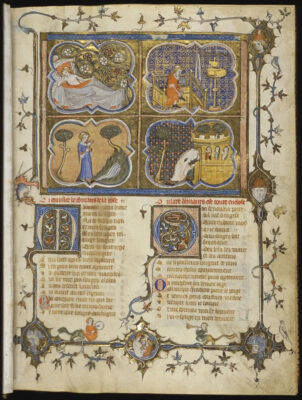
Poesiealbumrijm
Rozen verwelken, schepen vergaan.
Maar onze liefde blijft altijd bestaan.
Le Roman de la Rose
|
In desen tide so was dat icke |
In deze tijd gebeurde het dat ik |
Guillaume de Lorris en Jean de Meung (circa 1230-1235 en 1275-1280)[2]
The Wild Garden
I love the garden wild and wide,
Where oaks have plum-trees by their side;
Where woodbines[3] and the twisting vine
Clip round[4] the pear-tree and the pine;
Where mixed jonquils[5] and gowans[6] grow,
And roses ’midst rank[7] clover blow,
Upon a bank of a clear strand,[8]
In wimplings[9] led by nature’s hand;
Though docks[10] and brambles here and there
May sometimes cheat the gardener’s care,
Yet this to me’s a paradise
Compared with prime cut plots and nice,[11]
Where nature hath to art resigned,
Till all looks mean,[12] stiff, and confin’d.
Allan Ramsay (1686-1758)[13]
A Red Red Rose
O, my Luve’s like a red, red rose,
That’s newly sprung in June.
O, my Luve’s like a melodie
That’s sweetly play’d in tune.
As fair as thou, my bonnie lass,
So deep in luve am I;
And I will love thee still, my dear,
Till a’ the seas gang dry.
Till a’ the seas gang dry, my dear,
And the rocks melt wi’ the sun:
I will love thess till, my dear,
While the sands o’ life shall run:
And fare thee well, my only luve!
And fare thee weel, a while!
And I will come again, my luve,
Tho’ it ware ten thousand mile.
Robert Burns (1759-1796)
A l’hirondelle
Fille de Pandion, ô jeune Athénienne,
La cigale est ta proie, hirondelle inhumaine,
Et nourrit tes petits qui, débiles encor,
Nus, tremblants, dans les airs n’osent prendre l’essor.
Tu voles; comme toi la cigale a des ailes.
Tu chantes; elle chante. A vos chansons fidèles
Le moissonneur s’égaye, et l’automne orageux
En des climats lointains vous chasse toutes deux.
Oses-tu donc porter, dans ta cruelle joie,
A ton nid sans pitié cette innocente proie?
Et faut-il voir périr un chanteur sans appui
Sous la morsure, hélas! d’un chanteur comme lui!
André Chénier (1762-1794 )[14]
Ich liebe die Rose als das Vollkommenste
Ich liebe die Rose als das Vollkommenste,
Was unsere deutsche Natur als Blume gewahren kann;
Aber ich bin nicht Tor genug,
Urn zu verlangen,
Dass mein Garten sie mir schon jetzt,
Ende April gewahren soll…
Ich freue mich,
Wenn ich im Mai die Knospe sehe
Und ich bin glücklich,
Wenn endlich der Juni
Mir die Rosé selbst in aller Pracht
Und in allem Duft entgegenreicht.
Johann Wolfgang von Goethe (1749-1832)
Heideröslein
Sah ein Knab ein Röslein stehn,
Röslein auf der Heiden
War so schön und morgenschön,
Lief er schnell, es nah zu sehn,
Sah’ s mit vielen Freuden.
Röslein, Röslein, Röslein rot,
Röslein auf der Heiden.
Knabe sprach, Ich breche dich,
Röslein auf der Heiden!
Röslein sprach, ich steche dich,
Daß du ewig denkst an mich.
Und ich will’s nicht leiden
Röslein, Röslein, Röslein rot,
Röslein auf der Heiden.
Und der wilde Knabe brach s’
Röslein auf der Heiden;
Röslein wehrte sich und stach,
Half ihm doch kein Weh und Ach,
Mußt es eben leiden.
Röslein, Röslein, Röslein rot,
Röslein auf der Heiden.
Johann Wolfgang von Goethe (1749-1832; 1771)
Heidenröslein, Schubert — Elly Ameling
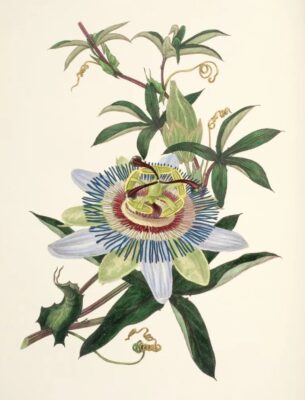
June
This is the year’s sweet prime! Methinks, like Youth,
‘Tis poetry embodied! Nay, I deem,
Delightsome June! that Fancy’s brightest dream
Outvies not thy fair beauty; nay in sooth,
For once she need but borrow hues from Truth
To picture thee. Now yield we every sense
To the sweet season’s genial influence,
And banish from our bosoms care and ruth.
Ask we for fragrance? lo! each little flower
Yields to our scarce-breathed wish its incense sweet;
For music? hie we to the glade and bower,
There the blithe birds shall give us welcome meet;
For beauty? deck’d in all its living power,
Earth lays her brightest trophies at our feet.
Rebecca Hey (1797-1867)
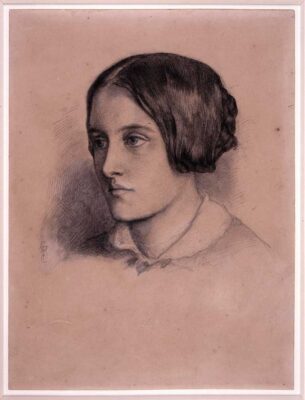
The Rose
The lily has a smooth stalk,
Will never hurt your hand;
But the rose upon her brier
Is lady of the land.
There’s sweetness in an apple tree,
And profit in the corn;
But lady of all beauty
Is a rose upon a thorn.
When with moss and honey
She tips her bending brier,
And half unfolds her glowing heart,
She sets the world on fire.
Christina Rossetti (1830-1894)
The approach of June, or the month of roses
‘Tis blushing on through brier and thorn,
The wintry winds are still;
Now softer zephyrs waft along,
The month of June to fill.
Soft dews descend upon the flowers
And kindly rest awhile;
‘Tis sweet to wait upon these hours,
To see the roses smile.
How beautiful the charming scene,
‘Tis far surpassing art,
Like purity in heavenly mien,
Reviving to the heart.
Sweet exhalations fill the air,
While music in the grove,
Invites my pensive soul to share
In all the songs of love.
Put off thy wintry robe my soul,
Born to rejoice and sing,
Let gratitude thy lips control
In praises to your king.
The soul with innocence possess’d,
Her incense safe may bear
To Christ, whose righteousness hath bless’d
The humblest form of prayer.
Thus while the roses greet our eyes,
In all their rich perfume,
Should our prayers like incense rise,
Our summer to illume.
Eliza en Sarah Goodsell Wolcott[17]
Nuits de juin
L’été, lorsque le jour a fui, de fleurs couverte
La plaine verse au loin un parfum enivrant;
Les yeux fermés, l’oreille aux rumeurs entrouverte,
On ne dort qu’à demi d’un sommeil transparent.
Les astres sont plus purs, l’ombre paraît meilleure ;
Un vague demi-jour teint le dôme éternel;
Et l’aube douce et pâle, en attendant son heure,
Semble toute la nuit errer au bas du ciel.
Victor Hugo (1802-1885)[18]
Chanson de juin
La rose fraîche et vermeille
Ouvre son cœur à l’abeille;
La blonde fille du ciel
Buvant son âme odorante,
Sur la fleur s’endort mourante,
Ivre d’arôme et de miel.
Cette rose, c’est ta bouche.
Oh! bienheureuse la mouche
Pour qui la fleur doit s’ouvrir!
Qui du miel dont tu me sèvres,
Un jour, pourra sur tes lèvres
Boire l’ivresse et mourir!
Auguste Lacaussade (1815-1897)[19]
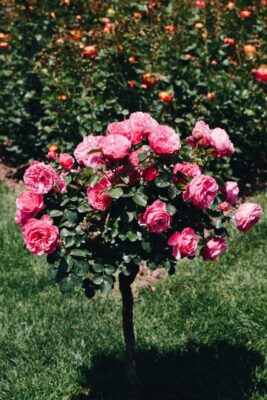
Rozenboompje
Als de zon des avonds daalt
Staat mijn rozenboom vol rozen,
Nog in ’t avondlicht te blozen
Dat zijn kruintje overstraalt.
’t Boompje bloost en bloeit en blinkt
In het midden van mijn gaarde,
Waar rondom de duisterende aarde
Reeds in schemering verzinkt.
’s Avonds in mijn rozenhof
Blijft het avondlicht gevangen
In de duizend roosjes hangen,
Rodend roos en rozelof.
Jacqueline E. van der Waals (1868-1922)[21]
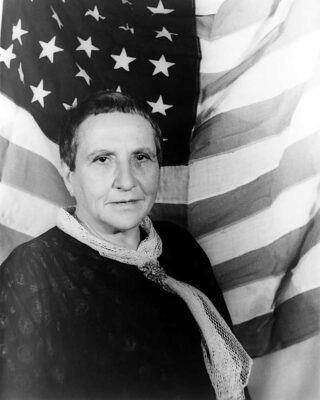
Sacred Emily
Argonauts.
That is plenty.
Cunning saxon symbol.
Symbol of beauty.
Thimble of everything.
Cunning clover thimble.
Cunning of everything.
Cunning of thimble.
Cunning cunning.
Place in pets.
Night town.
Night town a glass.
Color mahogany.
Color mahogany center.
Rose is a rose is a rose is a rose.
Loveliness extreme.
Extra gaiters.
Loveliness extreme.
Sweetest ice-cream.
Page ages page ages page ages.
Wiped Wiped wire wire.
Sweeter than peaches and pears and cream.
Wiped wire wiped wire
Extra extreme.
Put measure treasure.
Measure treasure.
Tables track.
Nursed.
Dough.
That will do.
Cup or cup or.
Excessively illigitimate.
Pussy pussy pussy what what.
Current secret sneezers.
Ever.
Mercy for a dog.
Medal make medal.
Able able able.
A go to green and a letter spoke a go to green or praise or
Worships worships worships.
Door.
Do or.
Table linen.
Wet spoil.
Wet spoil gaiters and knees and little spools little spools or ready silk lining.
Suppose misses misses.
Curls to butter.
Curls.
Curls.
Settle stretches.
See at till.
Louise.
Sunny.
Sail or.
Sail or rustle.
Mourn in morning.
The way to say.
Patter.
Deal own a.
Robber.
A high b and a perfect sight.
Little things singer.
Jane.
Aiming.
Not in description.
Day way.
A blow is delighted.
Gertrude Stein (1874-1946; 1922)
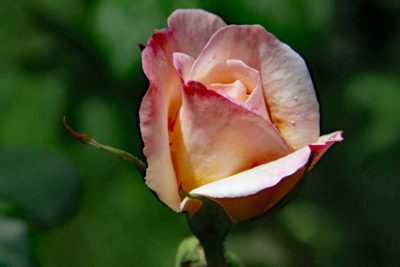
Nobody knows this little Rose
Nobody knows this little Rose —
It might a pilgrim be
Did I not take it from the ways
And lift it up to thee.
Only a Bee will miss it —
Only a Butterfly,
Hastening from far journey —
On its breast to lie —
Only a Bird will wonder —
Only a Breeze will sigh —
Ah Little Rose — how easy
For such as thee to die!
If I should cease to bring a Rose
If I should cease to bring a Rose
Upon a festal day,
‘Twill be because beyond the Rose
I have been called away —
If I should cease to take the names
My buds commemorate —
‘Twill be because Death’s finger
Claps my murmuring lip!
Emily Dickinson(1830-1886)
A sepal, petal, and a thorn[23]
A sepal, petal, and a thorn
Upon a common summer’s morn —
A flash of dew — a bee or two —
A breeze — a caper in the trees —
And I’m a rose!
Emily Dickinson(1830-1886)[24]
De wielewaal
Kom mee naar buiten allemaal
Dan zoeken wij de wielewaal
En horen wij die muzikant
Dan is zomer weer in ‘t land
Dudeljo klinkt zijn lied
Dudeljo klinkt zijn lied
Dudeljo en anders niet
Hij woont in ‘t dichte eikenbos
Gekleed in gouden vederdos
Daar jodelt hij op zijn schalmei
Tovert onze harten blij
Dudeljo klinkt zijn lied
Dudeljo klinkt zijn lied
Dudeljo en anders niet
Kom mee naar buiten allemaal
Dan zoeken wij de wielewaal
En horen wij die muzikant
Dan is zomer weer in ‘t land
Dudeljo klinkt zijn lied
Dudeljo klinkt zijn lied
Dudeljo en anders niet
Andries Hartsuiker (1903-1993)[25]
De wielewaal
Barlovento (vertaling Fred de Haas) [26]
|
Barlovento, Barlovento, tierra ardiente y del tambor Qué sabroso que mueve el cuerpo Que vengan los conuqueros Barlovento… |
Barlovento, tropisch land, land van de trommel, Wat beweegt de vrouw uit Barlovento Laat de mannen maar uit de velden komen Barlovento… |
Barlovento (Merengue) — Alma Latina; Mayra en Fred de Haas, Bart van de Velde
Noten
[1] Le Roman de la Rose (14e-eeuws handschrift) — Guillaume de Lorris en Jean de Meung, Miniatuur uit de roman. In een droom ziet de hoofdpersoon een rozenstruik, Museum Meermanno
[2] “In de Roman de la Rose droomt de ik-persoon dat hij tijdens een wandeling in een prachtige tuin terechtkomt. Daar wordt hij verliefd op een ontluikende roos, die hij zelfs weet te kussen: ‘Un baisier dous et savoré / Pris de la rose errament’ [Ik stal direct een zoete en lieflijke kus van de roos]. Jaloezie laat daarom een stevige burcht om de roos heen bouwen. Uiteindelijk weet de jongen met geweld, en met hulp van meerdere personages, de burcht binnen te dringen en de roos te plukken. Dan ontwaakt hij uit zijn droom. In deze passage, afkomstig uit een Middelnederlandse vertaling door de Brabantse dichter Heinric, lezen we dat de ik-persoon in zijn droom een wandeling maakt op een morgen in de lente en zo terechtkomt op een schitterende plaats.” Zie: literatuurgeschiedenis.org/teksten/roman-de-la-rose-frans, geraadpleegd op 2023-04-21.
[3] woodbines = Du. kamperfoelie
[4] Clip round = wind round
[5] a jonquil is a kind of narcisses
[6] gowan is a Scotch word for daisy
[7] rank = growing very luxuriantly
[8] strand is an old Scotch word for river
[9] In wimplings = irregularly (wimpling = Du. bocht, gloving)
[10] docks = Du. wilde zuring
[11] prime cut plots and nice = excellently and precisely cut gardens, gardens of a very regular shape
[12] mean = very common
[13] Van Hasselt, J.A.K. (1926) From Shakespeare to Swinburne, an annotated anthology with a chapter on English poetry (p. 29-30). Groningen: P. Noordhoff, 4e editie
[14] André Chénier, Poésies Antiques
[15] Bron: Passiebloem (1836) — Rebecca Hey, Uit: The Moral of Flowers. London : Longman, Rees, Orme, Brown, Green & Longman
[16] Bron: Christina Rossetti (1848) — Dante Gabriel Rossetti, British Museum
[17] Uit: Eliza en Sarah Goodsell Wolcott (1830) The Two Sisters’ Poems: And Memoirs (Heruitgave 2010. Whitefish, MT: Kessinger Publishing)
[18] Les rayons et les ombres (1840)
[19] Auguste Lacaussade (1876) Études poétiques
[20] Bron: Rozenboompje — foto tariktk
[21] Uit: Laatste Verzen (1923)
[22] Bron: Gertrude Stein (1935) — foto Carl Van Vechten, Van Vechten Collection, Library of Congress
[23] This poem is about how the world sees a rose. She is nice to look at, but people are afraid to get too close least they prick themselves on her thorny exterior. She is alone, but not necessarily unhappy about the situation.
[24] Dickinson, Emily (1976) The Complete Poems of Emily Dickinson. New York: Back Bay Books. (Poems: 1890; 1891, 1892)
[25] Volksliedje (1927) Uit: Andries Hartsuiker (circa 1948) Dudeldjo: Liedjes en Canons. Amsterdam: Uitg. NJG Nederlandse Jeugd Gemeenschap
[26] Uit: Fred W. de Haas (2025) Alma Latina, de geschiedenis van een ensemble. Privé uitgave, p. 80.

